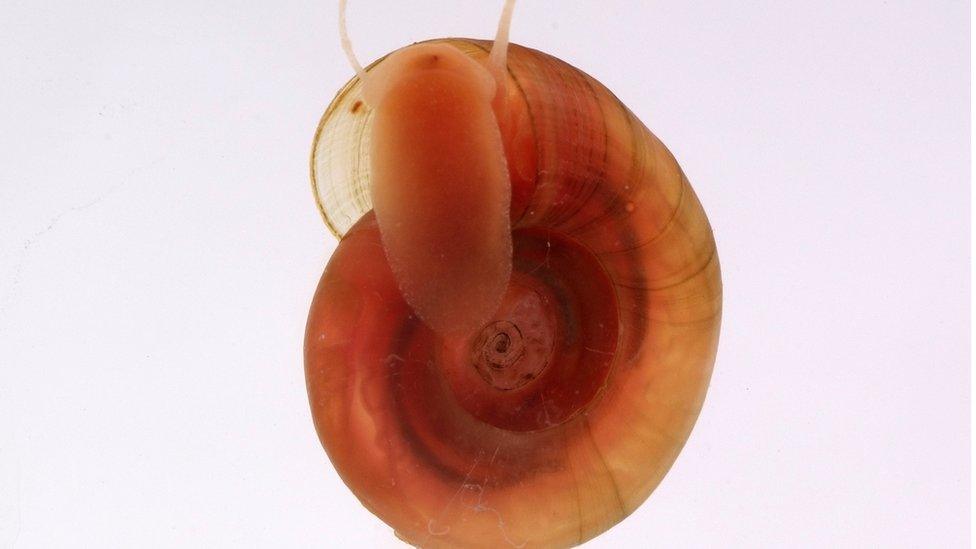Aberystwyth University research tackles 'killer' snails
- Published

Scientists from Aberystwyth University have helped make a discovery about a snail which passes on a parasite.
The Biomphalaria glabrata contributes to about 200,000 deaths a year by transmitting a tropical disease in Africa, Asia and South America.
The researchers helped international efforts to characterise the snail's genome - its genetic make-up - which could help control it.
Their findings have been published in the Nature Communications journal.
The snail transmits schistosomiasis, also known as Bilharzia, via a parasitic worm. More than six hundred million people are infected by the blood worm, and the parasite can remain in the body for years causing damage to the bladder, kidneys and liver.
People are susceptible to infection when they bathe, play, swim, wash, fish or walk through water infested by the parasite released from the aquatic snail.
Professor Karl Hoffmann of Aberystwyth University said: "These findings open up the possibility of controlling schistosomiasis by encouraging or engineering these natural microbes to turn against the snail, thereby reducing snail numbers and parasite transmission in endemic areas."
The team also helped identify a set of genes used by the snail to control biological processes, including snail reproduction - and showed the parasite is able to re-programme the functioning of these genes, which the scientists believe they can combat.
- Published12 January 2017

- Published19 April 2015

- Published23 March 2015
